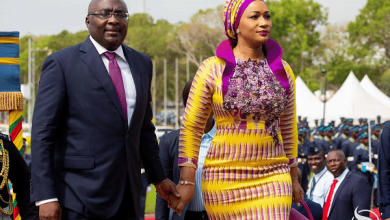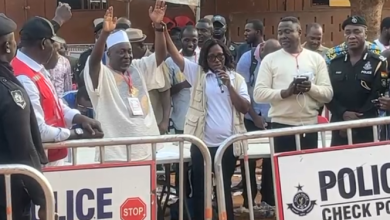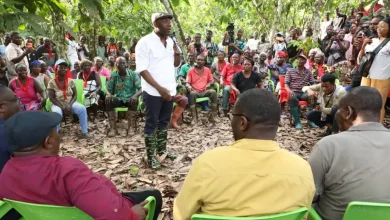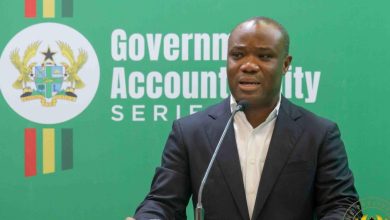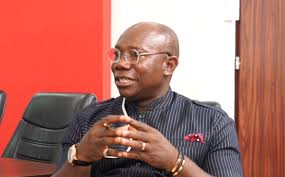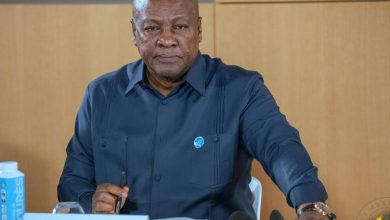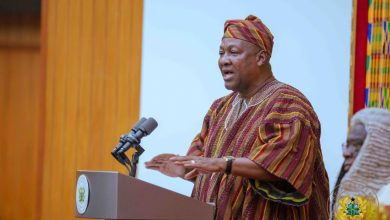From Manifesto to Mission: How Dr Matthew Opoku Prempeh’s Traffic Light Monitoring System led to Education Reform
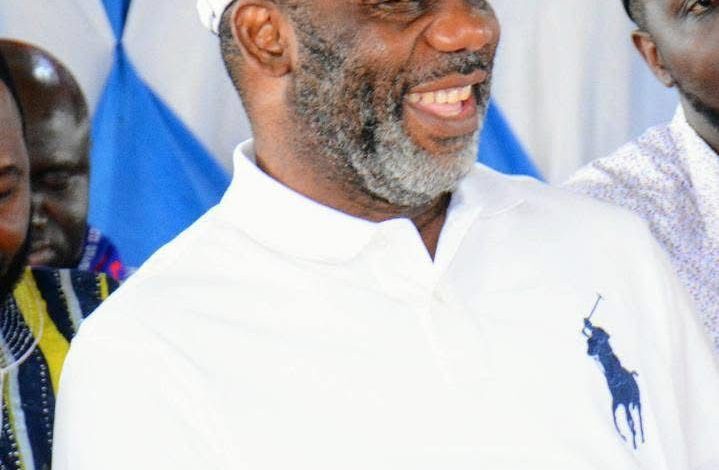
When the New Patriotic Party (NPP) secured a decisive victory in the 2016 general election, a nation with soaring expectations turned its gaze to President Nana Addo Dankwa Akufo-Addo’s cabinet.
Among his first and most telling appointments was that of Dr Matthew Opoku Prempeh as Minister of Education.
The task was monumental, the expectations immense. The President had made a bold promise to transform the very bedrock of Ghana’s future: its education system, with the flagship Free Senior High School (Free SHS) policy as its centrepiece.
Dr Prempeh, known to many as NAPO, was entrusted with this daunting mission.
What followed was not a gradual, hesitant approach but a swift, strategic and profoundly results-oriented campaign.
Dr Prempeh understood that the NPP’s 2016 Manifesto on education was not a mere political document but a “Bible”, a sacred set of promises to be delivered upon.
“Traffic light monitoring system”
To ensure absolute accountability and transparent progress, he immediately set about designing a now-famous “traffic light monitoring system.”
This innovative tool, with its intuitive red, yellow, and green indicators, became the central nervous system of the Ministry of Education.
It provided a real-time visual representation of progress, allowing Dr Prempeh and his team to track every single manifesto promise, ensuring that no reform was left behind.
By the close of 2018, the system was flashing green on an array of transformative policies, a testament to his focused and relentless leadership.
The first major undertaking was a drastic overhaul of the pre-tertiary education curriculum. For generations, the Ghanaian curriculum had stagnated, failing to equip students with the skills needed for the 21st century.
Dr Prempeh and his team, working with the National Council for Curriculum and Assessment (NaCCA), set a new standard.
The curriculum was revised to focus on the “4Rs”: Reading, wRiting, aRithmetic, and cReativity, shifting the emphasis from rote memorisation to a more student-centred, competency-based approach.
History, a subject essential for national identity, was reintroduced at the basic level, with the curriculum and teaching materials already developed and a national rollout scheduled for September 2019.
In a testament to his forward-thinking approach, Arabic was included in the curriculum review for JHS and SHS as an optional language, broadening the linguistic horizons of Ghanaian students.
Physical education was also given its rightful place, reintegrated into the curriculum as a critical component of holistic development.
The objective was clear: to produce a generation of Ghanaian children who were not only knowledgeable but also critical thinkers, creative problem-solvers and globally competitive.
Beyond the classroom walls, Dr Prempeh recognised that the very foundation of a modern economy rests on a skilled workforce.
STEM education
This conviction drove his massive reforms in Science, Technology, Engineering, and Mathematics (STEM) education and the complete revitalisation of TVET.
By the end of 2018, plans were firmly in place to construct 20 modern STEM centres across the country, with the first phase of construction already underway.
This wasn’t just about building labs; it was about nurturing a new pipeline of scientists, engineers and innovators.
Crucially, Dr Prempeh’s vision for STEM included an aggressive effort to “demystify mathematics and make Ghana a Mathematics-friendly nation”.
To this end, the ministry undertook multiple interventions, including the strategic integration of technology and global partnerships.
Efforts included intentional collaborations with world-class educational technology platforms like Matific (from Australia) and Whizzmaths (from the UK) to provide engaging, interactive mathematics content.
The government further ensured that supplementary mathematics questions and answer books were supplied to all Senior High Schools (SHS).
This digital push was cemented by the One Teacher One Laptop and the One Student One Tablet initiatives, which aimed to equip educators and learners with 21st-century tools.
Both the laptops and tablets were preloaded with educational content, including mathematics content, to support instruction and self-learning.
In a move to future-proof the Ghanaian workforce, the review of the Standard-Based Curriculum saw the formal introduction of coding into the basic and junior high school curriculum.
Furthermore, the Ministry of Education, under Dr Prempeh, focused heavily on physical infrastructure, undertaking major projects for the rehabilitation, reequipping, and building of new science laboratories in SHS to ensure that practical science teaching had the necessary facilities.
In TVET, the objective was to dismantle the long-held stigma and elevate vocational training to a gold standard.
A five-year strategic plan was crafted to realign all public TVET institutions under the Ministry of Education, and a national audit of skills was completed to ensure training programmes were directly linked to industry needs.
Dr Prempeh was a master at national governance, navigating the complexities of different government agencies to enact laws that would cement these reforms, demonstrating his ability to work closely with the legislative arm to drive policy adaptation.
ICT in education
The transformation also extended to ICT in education.
The ministry understood that in a digital age, technology was not a luxury but a necessity.
An ICT curriculum for basic education was approved, and a robust e-learning platform, www.icampusgh.com, was developed to provide educational content for SHS students.
The push for digital literacy went further, with collaborations to provide free Wi-Fi in SHS and tertiary institutions.
The introduction of programming at the JHS and SHS levels, which had already reached over 313,000 students through partnerships such as Africa Code Week, was a bold step towards a future-ready Ghanaian workforce.
Teacher professionalism
At the core of any education system are its teachers. Dr Prempeh’s leadership was deeply rooted in the belief that an empowered and professionalised teaching workforce is the key to success.
He prioritised teacher professionalisation and welfare, implementing a series of impactful reforms.
The much-heralded teacher trainee allowance was restored, providing a much-needed financial lifeline to aspiring educators.
The period for teacher promotion was shortened, and the recruitment process was decentralised, cutting through the red tape that had long frustrated teachers.
The ministry, with its team of dedicated technocrats, worked tirelessly to develop a National Teacher Policy and a comprehensive professional development framework.
The goal was to ensure that every teacher was not only well-compensated but also continuously equipped with the skills and knowledge to deliver high-quality instruction.
The reforms were also extremely inclusive, recognising that no child should be left behind.
The ministry’s focus on early childhood and inclusive education was a testament to this commitment.
The construction of new kindergartens was fast-tracked, with 163 contracts awarded and 77 schools already completed by the end of 2018.
Early Childhood Education Policy
An Early Childhood Education Policy was developed, providing a clear road map for the education of children from ages zero to eight.
The Inclusive Education Policy was not just a document but a living framework, with UNICEF-supported training for teachers to ensure that children with special needs were seamlessly integrated into regular schools.
A leader’s vision is only as strong as their ability to garner support and secure resources. Dr Prempeh’s adeptness at building partnerships and securing infrastructure funding was central to his success.
Partnership
The “Ghana Partnerships Schools” initiative was a bold step toward leveraging the expertise of non-state organisations to improve low-performing basic schools.
The ministry also engaged with faith-based organisations to formalise their critical role in managing mission schools.
Financially, the free SHS programme was a resounding success, benefitting over 1.1 million students by January 2019.
The Capitation Grant for basic education was increased by 120 per cent, effectively removing financial barriers at that level.
In a landmark achievement, a substantial loan of $1.5 billion was secured through GETFund, a monumental feat that would fuel the expansion of educational infrastructure at all levels, from primary schools to tertiary institutions.
By December 2018, the traffic light monitoring system was a kaleidoscope of green, with key areas of reform flashing success.
The story of Dr Matthew Opoku Prempeh’s tenure is a masterclass in governance.
It is the story of a leader who replaced rhetoric with action, promises with policies, and inertia with innovation.
He led a ministry that was not reactive but proactive, driving life-changing reforms while keeping the entire government machinery in perfect unison.
He was a master legislator and diplomat, expertly navigating the Cabinet to secure approval for every major decision while working hand-in-hand with the legislative arm to enact the laws necessary to cement government support for his reforms.
Ultimately, the traffic light system was more than just a tool; it was a symbol of his unwavering commitment to accountability.
It stood as a public promise that every commitment would be met with measurable action.
The reforms in curriculum, STEM, TVET, teacher professionalisation, and infrastructure were not just numbers on a chart; they were the seeds of a new future for Ghana’s children, a future where quality education is a right, not a privilege.
Dr Prempeh’s enduring legacy is a testament to the fact that with the right leadership, a clear vision, and a relentless focus on results, a nation’s destiny can be reshaped, one student at a time.
The story of Ghana’s education revolution is a compelling one, and at its heart is a leader who was, and is, on an undeniable mission.
The writer is a former Deputy Director-General of the Ghana Education Service, serving from 2018 to 2025.

